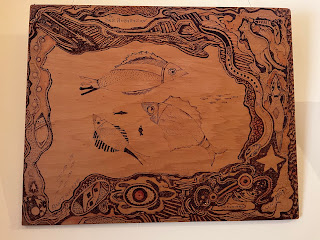 Juozas Riauba compiled a list of Lithuanian's who had graduated from University (Adelaide, Flinders and SA Institute of Technology). Apparently he was a man who read the death notices every day to see if any Lithuanian's had passed away.
Juozas Riauba compiled a list of Lithuanian's who had graduated from University (Adelaide, Flinders and SA Institute of Technology). Apparently he was a man who read the death notices every day to see if any Lithuanian's had passed away.The list is from 1954 to 1974. In that period he recorded 81 Lithuanian names. The most obtained degree was a Bachelor of Arts (17 people) followed by Medicine (14 people), the next Science (12), then Engineers (10). One completed a Music degree at Adelaide University.
A few of the students undertook their degrees to to be able to practice their profession in Australia, mainly those with a medical background. Australia would not recognise degrees obtained oversees, or studies were interrupted because of the war.
Twenty five of the graduates were women and 26 moved away from Adelaide once graduated. Some probably returned. Riauba included a notes column where he recorded where they moved to.








